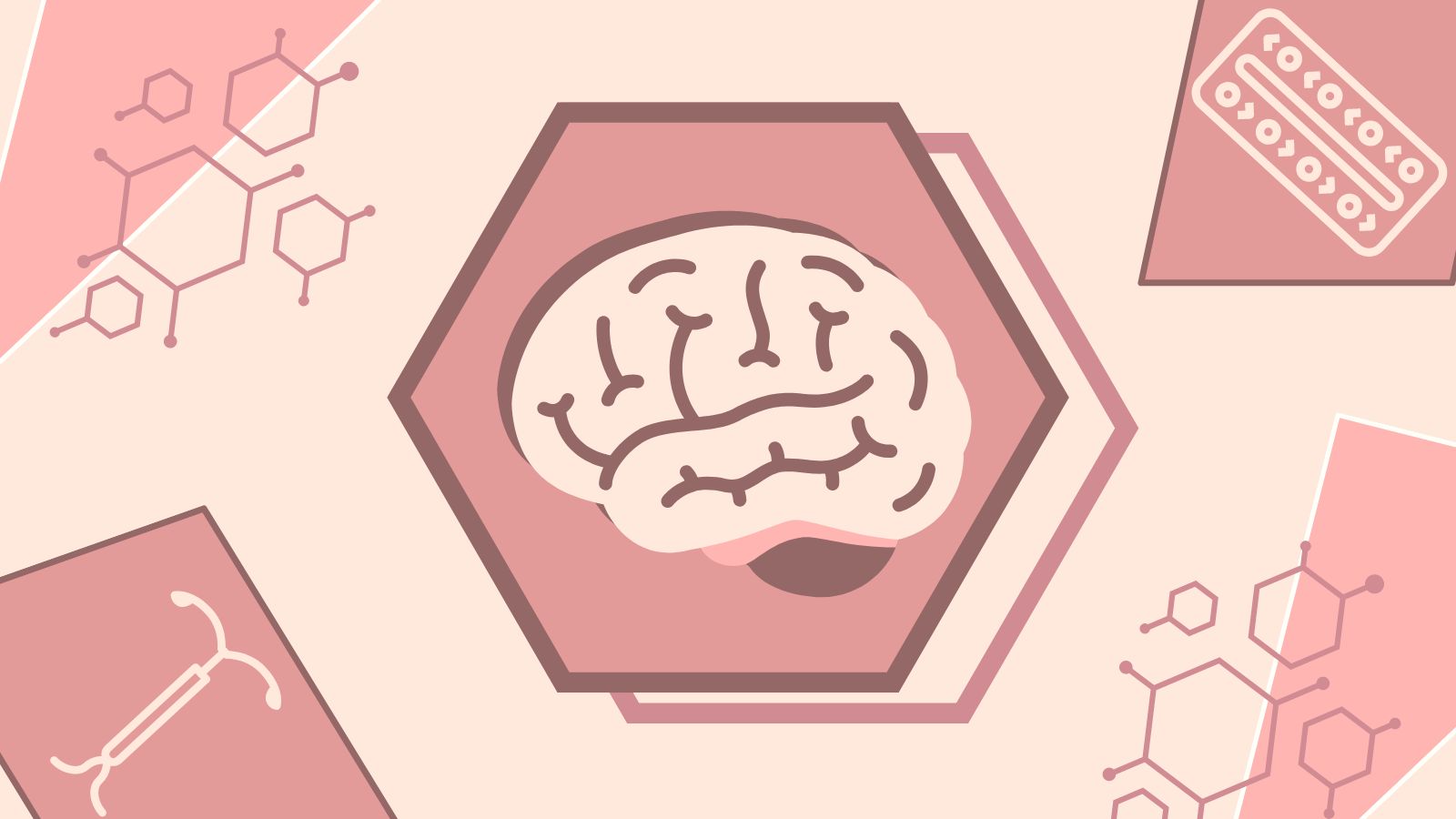Mind the Gap: Hormonal Contraceptives and Brain Health
Mind the Gap: Hormonal Contraceptives and Brain Health—Symposium 4: Hormonal Contraceptives and Cognition
March 23, 2023, 10:00 am to 11:45 am

This symposium is part of our virtual "Mind the Gap: Hormonal Contraceptives and Brain Health" series, which brings attention to the brain health issues that women+ face and encourage the medical, scientific and commercial communities to address them. In this session, we will hear from three renowned speakers who will discuss pertinent topics related to evaluating research on hormonal contraceptives and its' relation to cognition, empathy, and social-emotional brain functions. Attendees will also get a chance to join the conversation during a Q&A period to close the session. Dr. Gillian Eintstein will moderate the event and facilitate conversation.
Agenda
10:00-10:05—Welcome Remarks
10:05-10:30—Speaker 1: Dr. Adriene Beltz, University of Michigan, Ann Arbor, Michigan
10:30-10:55—Speaker 2: Dr. Birgit Derntl, University of Tübingen, Germany
10:55-11:20—Speaker 3: Dr. Marie-France Marin, University of Quebec, University of Montreal
11:20-11:45—Q&A
Individual Event Cost
General Public: $15
Students: $10
We offer you the option of registering for individual events or signing up for the entire series. Video recordings of our conference sessions will be sent to all registrants following each event. Register for this individual event below.
Speakers | Bios |

| Dr. Adriene Beltz Talk Title: From General Inferences to Specific Effects: Evaluating Research on Hormonal Contraceptives and Cognition Talk Abstract: The importance of ovarian hormones for neurocognition is established in the experimental literature. Only recently, however, have hormonal contraceptives been considered as natural experiments of ovarian hormone effects in girls, women, and people with uteri. Indeed, research on hormonal contraceptives and cognition has surged in the past decade. This talk will provocatively synthesize this extant literature, focusing on spatial skills and verbal memory. The synthesis will emphasize the neuroendocrine aspects of hormonal contraceptives (e.g., estrogenic, progestational, and androgenic activities) that may matter most for cognition, the timing and persistence of potential effects (i.e., organizational vs. activational effects), and the strength of evidence for effects (indicated by the methods of reviewed studies). The talk will end by sharing exciting new developments and future research directions. Bio: Dr. Adriene Beltz is an Associate Professor of Psychology at the University of Michigan. She is a quantitative developmentalist who studies sex hormone influences on the brain and gendered behaviors across the lifespan. She specializes in ovarian hormone links to cognition and psychopathology and uses innovative methods to reveal when women are – and are not – well-represented by averages. Dr. Beltz received her PhD in Psychology, specializing in Social, Cognitive, and Affective Neuroscience, from Penn State University, and she completed a post-doctoral position at the same university focused on quantitative methodology before joining the University of Michigan faculty in 2016. Her research is funded by the National Institutes of Health, Jacobs Foundation, and James S. McDonnell Foundation. She has also received awards from the Association for Psychological Science as well as Divisions 5 (Methods) and 6 (Behavioral Neuroscience) of the American Psychological Association |

| Dr. Birgit Derntl Talk Title: Empathy, Stress and so Much More: Hormonal Contraception and the Social Brain Talk Abstract: Many million women use hormonal contraceptives, with oral contraceptives being the most prescribed pill worldwide. However, little is known about the effects of hormonal contraceptives on brain architecture and behavior, in particular socio-emotional processes. In this talk I want to present recent findings on two different socio-emotional aspects, namely empathy and stress reactivity. First, I want to talk about results from a longitudinal study investigating the impact of starting, stopping or continuously taking oral contraceptives on the behavioral and neural correlates of empathy and more generally brain architecture. Moreover, I will show recent data comparing stress reactivity of women taking oral contraceptives, women using intra-uterine devices and naturally cycling women. With our research we aim to contribute to a better understanding of the effects of hormonal contraceptives on the social brain and consequently socio-emotional behavior – ultimately supporting users and clinicians around the world to make more informed choices regarding contraception. Bio: Dr. Birgit Derntl, trained psychologist and psychotherapist (CBT), full professor for Innovative Neuroimaging, Department f or Psychiatry & Psychotherapy, Tübingen Center for Mental Health, University of Tübingen, Germany. Research focus: Social and Affective Psychoneuroendocrinology with a particular focus on Women's Mental Health. |

| Dr. Marie-France Marin Talk Title: Hormonal Contraceptives and Their Effects on the Brain, Cognition, and Mental Health Talk Abstract: Hormonal contraceptives abolish the menstrual cycle and significantly decrease endogenous sex hormone levels. Consequently, the brain regions having a high density of sex hormone receptors are no longer exposed to fluctuating levels of sex hormones. Our laboratory is interested in documenting the acute and lasting effects of hormonal contraceptives on the brain, with a focus on cognition and mental health. In this talk, two sets of data will be presented. First, data on hormonal contraceptive use and psychological distress during the COVID-19 pandemic will be discussed. In this study, we showed that women using hormonal contraceptives had heightened psychological distress in response to the pandemic and this effect was also observed in past hormonal contraceptive users. Second, data collected from more than 200 individuals (with naturally cycling women who have never used hormonal contraceptives, current users, and past users) will be presented, with a focus on cognitive tasks that typically favour men or women, as well as structural MRI data. Between-group differences will be explored as well as the parameters associated with hormonal contraceptive use, such as duration of use and androgenicity. This presentation will highlight the importance of documenting not only current hormonal contraceptive use and its associated variables but also considering history of past hormonal contraceptive use, as this could have long-lasting effects on the brain. Bio: Dr. Marie-France Marin holds a PhD in neuroscience from the University of Montreal and completed postdoctoral training at the Massachusetts General Hospital, Harvard Medical School. She is a professor in the Department of Psychology at the University of Quebec in Montreal, an associate professor in the Department of Psychiatry and Addiction at the University of Montreal, a researcher at the Montreal Mental Health University Institute Research Centre, and a research member of the Réseau intersectoriel de recherche en santé de l’Université du Québec. Her expertise focuses on the impact of stress and stress hormones on the modulation of emotional memories. During her postdoctoral training, she furthered her knowledge of the modulation of memory processes, with a particular focus on fear-related and traumatic memories. In 2016, she founded the Stress, Trauma, Emotions, Anxiety, and Memory Lab (STEAM Lab). She and her team are pursuing two main research axes: one focusing on the mechanisms by which stress and sex hormones influence fear and safety learning and the other focusing on the intergenerational transmission of the risk for psychopathologies in families with a parent suffering from post-traumatic stress disorder. Overall, supported by major funding agencies, her research aims to document the environmental and biological factors that increase one’s vulnerability to develop various stress or fear-related psychopathologies. Recently, she was awarded a Canada Research Chair in hormonal modulation of cognitive and emotional functions. |
Moderator | |

| Dr. Nafissa Ismail, Professor of Psychology, University of Ottawa
|